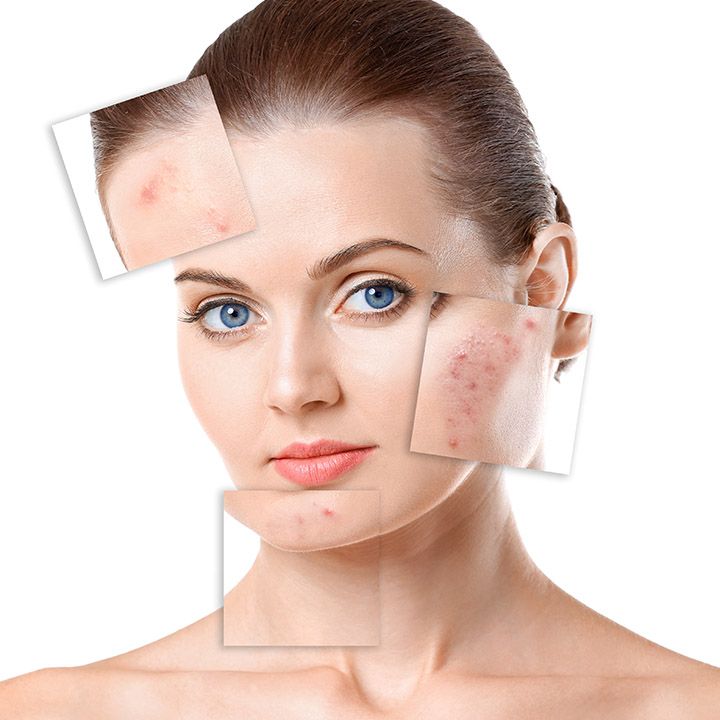
Why Does Acne Exist & How Do I Stop Getting Acne?
Share
Acne is one of the most common skin conditions, affecting millions of people worldwide. Whether you're a teenager or an adult, dealing with acne can be frustrating and sometimes even embarrassing. But have you ever wondered why acne exists in the first place? And more importantly, how can you stop it from taking over your skin? Let’s dive into the science behind acne and explore some effective ways to manage and prevent it.

Why Does Acne Exist?
Acne is primarily a result of your skin’s natural processes getting a little out of balance. Here’s what’s happening beneath the surface:
-
Clogged Pores: Your skin has tiny openings called pores, which are connected to oil glands under the skin. These glands produce sebum, an oily substance that helps keep your skin hydrated. Sometimes, dead skin cells, excess oil, and dirt can clog these pores, creating the perfect environment for acne to form.
-
Bacteria Buildup: When pores are clogged, a type of bacteria called Cutibacterium acnes (formerly Propionibacterium acnes) can thrive. This bacteria is naturally present on your skin, but when it multiplies in clogged pores, it triggers inflammation, leading to red, swollen pimples.
-
Hormonal Changes: Hormones play a huge role in acne development. During puberty, pregnancy, or even stress, your body produces more androgens (male hormones present in both men and women). These hormones stimulate oil glands to produce more sebum, increasing the likelihood of clogged pores and breakouts.
-
Genetics: If your parents had acne, you’re more likely to experience it too. Genetics can influence how your skin produces oil, sheds dead cells, and responds to inflammation.
-
Lifestyle Factors: Diet, stress, and skincare habits can also contribute to acne. For example, eating a lot of sugary or high-glycemic foods may worsen acne for some people, while stress can increase oil production and inflammation.
How Do I Stop Getting Acne?
While acne can’t always be completely prevented, there are several steps you can take to reduce breakouts and keep your skin clear:
-
Cleanse Your Skin Gently: Wash your face twice a day with a gentle, non-comedogenic cleanser to remove excess oil, dirt, and makeup. Avoid harsh scrubs, as they can irritate your skin and worsen acne.
-
Exfoliate Regularly: Use a mild exfoliant 1-2 times a week to remove dead skin cells and prevent clogged pores. Look for products with salicylic acid or glycolic acid, which are great for acne-prone skin.
-
Moisturize: Even oily skin needs hydration! Choose an oil-free, non-comedogenic moisturizer to keep your skin balanced without clogging pores.
-
Use Acne Treatments: Over-the-counter products containing benzoyl peroxide, salicylic acid, or retinoids can help reduce acne by unclogging pores and killing bacteria. For severe acne, consult a dermatologist for prescription treatments like topical antibiotics or oral medications.
-
Watch Your Diet: While the link between diet and acne is still being studied, some people find that reducing dairy, sugar, and high-glycemic foods helps improve their skin.
-
Manage Stress: Stress can trigger hormonal changes that lead to breakouts. Practice stress-reducing activities like yoga, meditation, or exercise to keep your skin (and mind) healthy.
-
Avoid Touching Your Face: Your hands carry bacteria and oils that can transfer to your face, so try to avoid touching your skin unnecessarily.
-
Change Your Pillowcases Regularly: Oil, dirt, and bacteria can build up on your pillowcases, so wash them at least once a week to prevent breakouts.
-
Stay Hydrated: Drinking plenty of water helps flush out toxins and keeps your skin hydrated from the inside out.
Final Thoughts
Acne exists because of a combination of factors, including clogged pores, bacteria, hormones, and genetics. While it can be stubborn, it’s not unbeatable. By understanding the root causes of acne and adopting a consistent skincare routine, you can significantly reduce breakouts and achieve clearer, healthier skin. Remember, everyone’s skin is different, so it may take some trial and error to find what works best for you. Be patient, and don’t hesitate to seek professional help if needed. Your skin deserves the care!